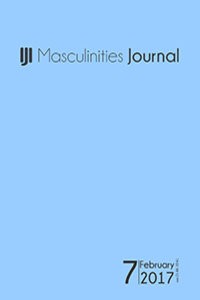Tobias Wolff’ün Pharaoh’s Army ve Pat Barker’ın Regeneration isimli eserlerinde Mazoşizm ve Homososyal Arzu Sahneleri
Abstract
“Tobias Wolff’ün Pharaoh’s Army ve Pat Barker’ın
Regeneration isimli eserlerinde Mazoşizm ve Homososyal Arzu Sahneleri” isimli
bu makale cinsellik ve disiplinle bağlantılı olarak ele alınan “erkeklik”
teriminin tarihe bağlı bir okumasını yapmayı amaçlar. Özellikle, bedeni
“erkeksi” olarak giydiren ya da inşa eden söylemsel anlam katmanlarıyla
ilgiliyim. Amacım bu bedenin prostekik belirleyicilerini soymak değil, onu
incelemek ve sosyal çevresi ve terbiye edici kurumları ile ilişki içerisinde
yeniden konumlandırmaktır. Tobias Wolff’ün Pharaoh’s Army ve Pat Barker’ın
Regeneration isimli çalışmalarından bir dizi sahne, pasaj ve argümanı
inceleyerek bir erkek homososyal mazoşistik sahnenin oluşumundaki politik
riskleri vurgulamak için Gilles Deleuze’ün “mazoşizm” kavramını gözden
geçireceğim.
Keywords
References
- Barker, Pat. Regeneration. New York: Plume, 1993.
- Deleuze, Gilles. Masochism: Coldness and Cruelty. New York: Zone Books, 1991.
- Foucault, Michel. The History of Sexuality, Volume I. New York: Vintage Books, 1978.
- Sedgwick, Eve. Between Men: English Literature and Male Homosocial Desire.New York: Columbia University Press. 1985.
- Wolff, Tobias. In Pharaoh’s Army: Memories of the Lost War. New York: Vintage, 1994.
- Zizek, Slavoj. The Sublime Object of Ideology. New York: Verso, 1989.
Scenes of Masochism and Male Homosocial Desire from Tobias Wolff’s In Pharaoh’s Army and Pat Barker’s Regeneration
Abstract
This article, “Scenes
of Masochism and Male Homosocial Desire from Tobias Wolff’s In Pharaoh’s Army and
Pat Barker’s Regeneration,”
seeks to develop a historically contingent reading of the term “masculinity” as
it is elaborated in relation to sexuality and discipline. More specifically, I
am interested in looking at the layers of discursive meanings that construct or
clothe the body as “masculine.” My aim is not to undress this body of its
prosthetic signifiers, but address this body, or to locate it in relation to
its social surroundings, and disciplinary institutions. By examining a series
of scenes, passages and arguments from Tobias Wolff’s In Pharaoh’s Army and Pat Barker’s Regeneration, I will revise Gilles Deleuze’s notion of “masochism”
to highlight the political stakes in
formulating a male homosocial masochistic scene.
Keywords
References
- Barker, Pat. Regeneration. New York: Plume, 1993.
- Deleuze, Gilles. Masochism: Coldness and Cruelty. New York: Zone Books, 1991.
- Foucault, Michel. The History of Sexuality, Volume I. New York: Vintage Books, 1978.
- Sedgwick, Eve. Between Men: English Literature and Male Homosocial Desire.New York: Columbia University Press. 1985.
- Wolff, Tobias. In Pharaoh’s Army: Memories of the Lost War. New York: Vintage, 1994.
- Zizek, Slavoj. The Sublime Object of Ideology. New York: Verso, 1989.
Details
| Primary Language | English |
|---|---|
| Journal Section | Articles |
| Authors | |
| Publication Date | February 15, 2017 |
| Published in Issue | Year 2017 Issue: 7 |


